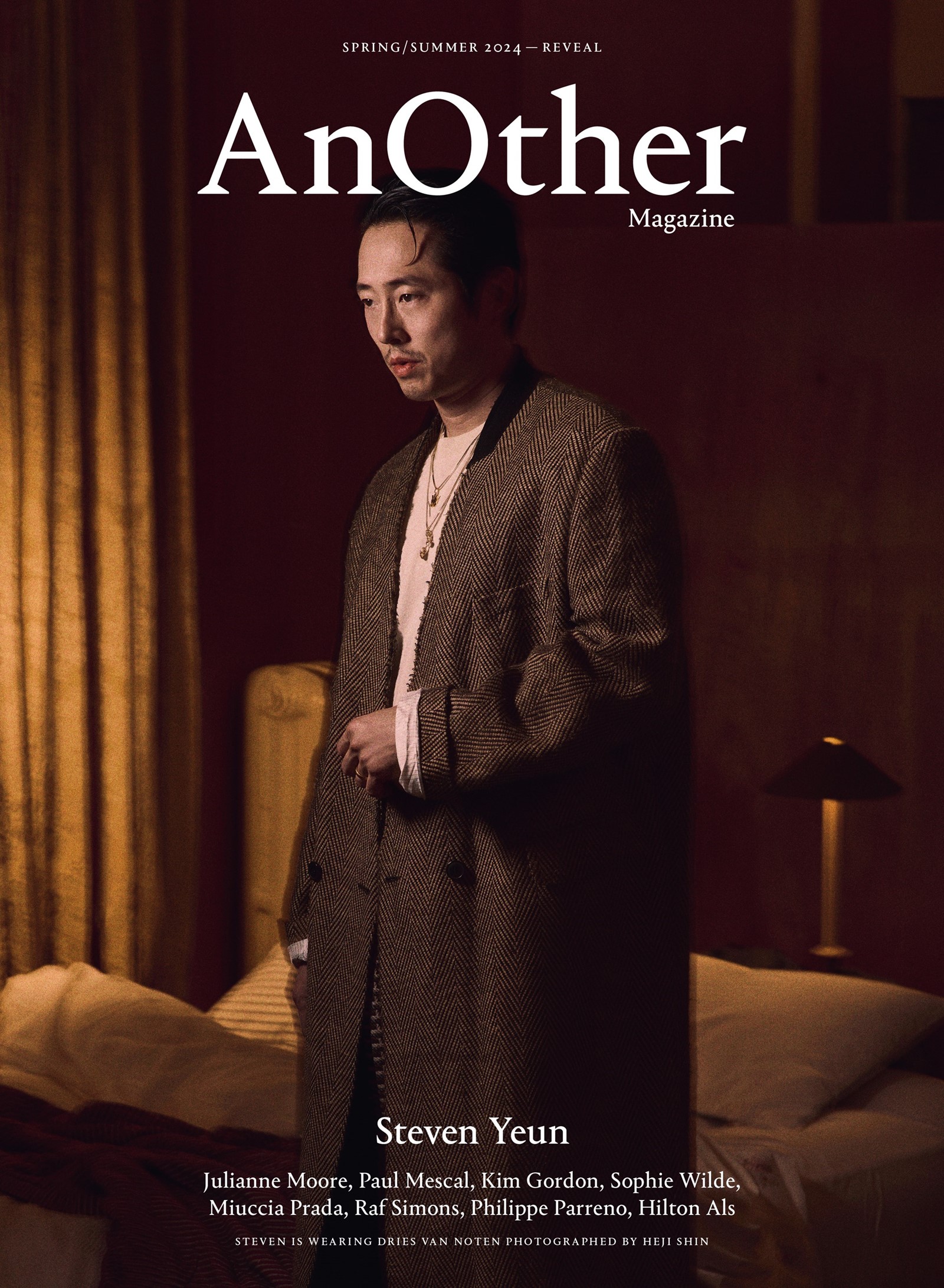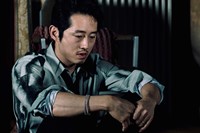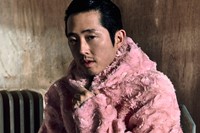This article is taken from the Spring/Summer 2024 issue of AnOther Magazine:
“There’s always fucking something,” the handyman, played by Steven Yeun, is saying to himself, sitting behind the wheel of his weathered pick-up truck. It’s one of those days where the petty gods are all morbid in their humour: the queue at the home improvement store had been long, the cashier was feeling unsympathetic and Danny Cho was just trying to return three hibachi grills he had been planning to use to kill himself, only he couldn’t produce the necessary receipts. Now he’s stuck with the souvenirs of his depression, and with himself, and whatever omen one can reasonably extract from this hand of cards. His luck is foul and baking in the LA sun. Even his seatbelt is giving him a hard time.
The compounding losses play across his face: a flash of stifled anger, a weak attempt at self-soothing and something like resignation. Staccato blinking, a gnaw at the bottom lip and a slow exhale. Every day has its parade of tragicomic inconveniences, and if you’re of a certain social experience, if you look a certain way, most of these tallies are destined to remain unsettled. There are some people for whom public displays of anger are warranted but socially denied. Still, the body keeps score and Danny is at the end of his rope. When someone pulls their sparkling Mercedes SUV in behind him just as he’s backing out of his parking spot, slams on their horn for a brief eternity and then thrusts a middle finger out of their window his despair kindles into fury. He takes off down the road behind them and peels madly through the suburbs, ruining flower beds, narrowly skirting accidents and memorising the number plate as they escape. It’s like an inverted meet-cute: the pair are suddenly, catastrophically, bonded by their uncorked rage, and alive to the fact that neither has anywhere else to put it. The next nine episodes of Beef chronicle the destruction they sow in each other’s lives, and in their own.
In person, Yeun is calmer, more polite and surprised that anyone would take an aeroplane ride to LA to speak to him of all people, even though he’s one of the finest actors of his generation. We’re seated across from each other at a quaint diner in north Eagle Rock, where three booths are occupied by men in cowboy hats dozing off into their newspapers. Yeun is sipping Lipton tea in between bites of a grilled cheese sandwich and trying to explain the consequences of psyching himself into Danny’s existential rage every day over the course of three months. “The process was refreshing,” he says, “and freeing too, but it was also kind of painful.” The morning after filming wrapped for Beef – which earned three Golden Globe awards, including for best actor in a miniseries for Yeun, and three Emmys – Yeun found a rash of hives had broken out on his legs and torso. His co-star Ali Wong experienced the same affliction on her face; neither actor had anticipated the bodily toll of their performance. But the pain Yeun describes was more mental than it was physical. “I was probably unpacking things from my youth that I hadn’t touched for a while,” he says. Sometimes the characters work that way, guiding him through the emotions of his tangled past. “It made sense, seeing the anger localised on my body like that.”
At times that pain pertained to the precarities of an experience we share: growing up as children of immigrants in predominantly white suburbs, him in Troy, Michigan, me just east of Toronto. “I always felt kind of unseen, and like the way I needed to carry myself was inherently inauthentic, because I was just trying to survive and fit in with America,” he says.
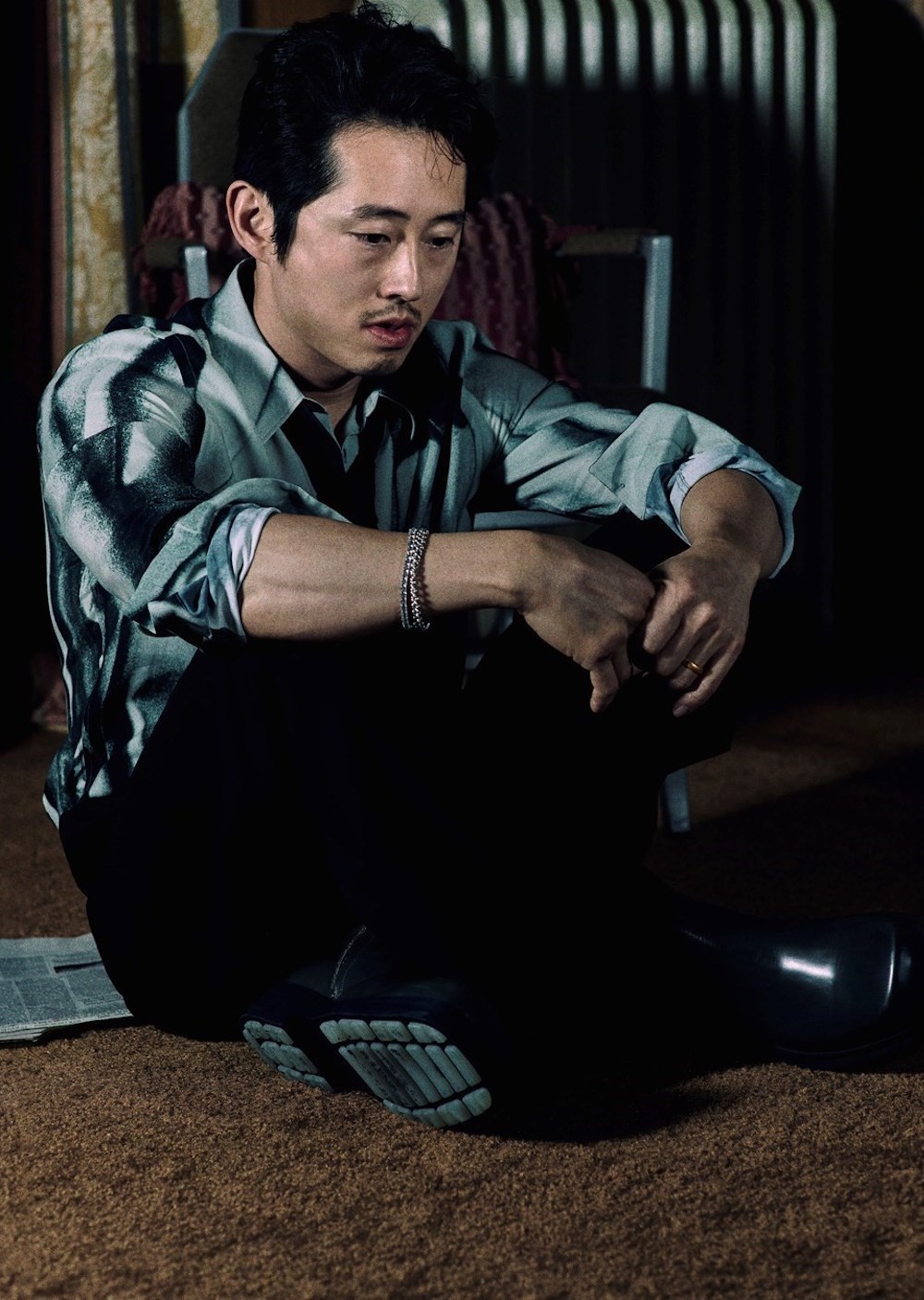
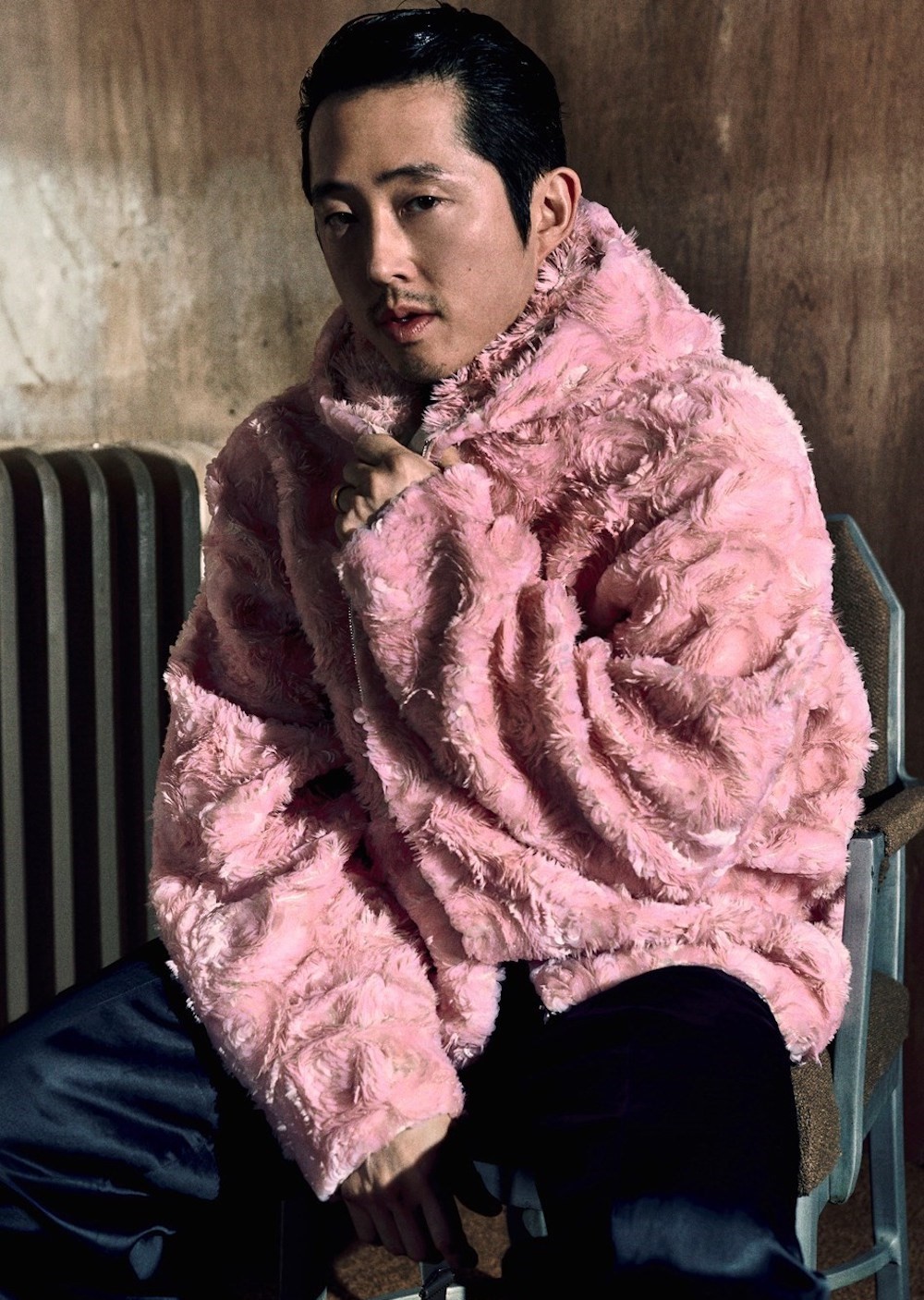
His father, who had been an architect back in Seoul, moved the family to Saskatchewan, in Canada, when Yeun was four, then to Michigan shortly afterwards, and Yeun found himself projecting this belaboured air of friendliness that soon curdled into misery. “I think I found this weird place where I was constantly performing in my outside life,” he says, “and then I would be so angry at home because I felt so far from this image of myself that I had created. It was this constant tension. I had a really short fuse.”
There are other elements of their personal biographies that Yeun and Lee Sung Jin, the creator of Beef, mined and folded into Danny’s volatile character: their formative experiences in Korean church, the Nineties basketball shorts and shabby dollar-store slides, the buzzed haircut that’s both too long and too short to not look awkward, the unfashionable taste for emo rock songs like Incubus’s Drive (which Yeun performed as a teenager in a church talent show and also sings during one scene in Beef). But what Yeun felt most acutely is that particular blend of anger, shame and alienation that often results from abiding by the terms of a dominant culture poised to misunderstand you. “It doesn’t control me any more,” he says, “but that anger is familiar to me.” Danny is a lonely, downtrodden contractor who can’t help but fail everyone’s expectations. He’s the older brother in a Korean family but struggles to earn anyone’s respect. He’s inept at his job and regularly comes up against the tyranny of the model minority myth. He’s also someone with bad credit whose self-worth equates with economic success – he feels in part responsible for the failure of his parents’ motel – but all he seems to be learning is that there is a void inside him, and that his pursuit of the golden dream in this so-called American meritocracy was doomed from the start.
Beef marks Yeun’s first lead role in a live-action series since he became a star playing Glenn Rhee in The Walking Dead, and follows a procession of captivating, offbeat performances that have made him one of the most unpredictable actors of his time. He has described Glenn as a “plucky nice guy”. He was still a fan favourite – many gave up watching after Glenn was brutally killed – and while his preternatural sunniness wasn’t a major problem, Yeun says, it did conform to a palatable, serviceable version of Asianness that failed to acknowledge any human-scaled complexity. It seemed fitting that the movie roles he gravitated to afterwards were so zany and surprising, and showcased his impressive range: the mischievous translator for a radical animal rights group (in Bong Joon-ho’s Okja); a charming telemarketer with a budding appetite for revolution (Boots Riley’s Sorry to Bother You); and a former child star who’s made a theme park out of his trauma (Jordan Peele’s Nope). He recently reunited with Bong for the sci-fi flick Mickey 17 (out early next year) – alongside Robert Pattinson, Toni Collette and Mark Ruffalo – about an expedition to colonise an ice planet, during which a disposable employee’s body and memories regenerate after he dies. He’s also starring in Love Me, billed as a romance between a satellite (played by Yeun) and a buoy (Kristen Stewart) who meet online after the end of humanity.
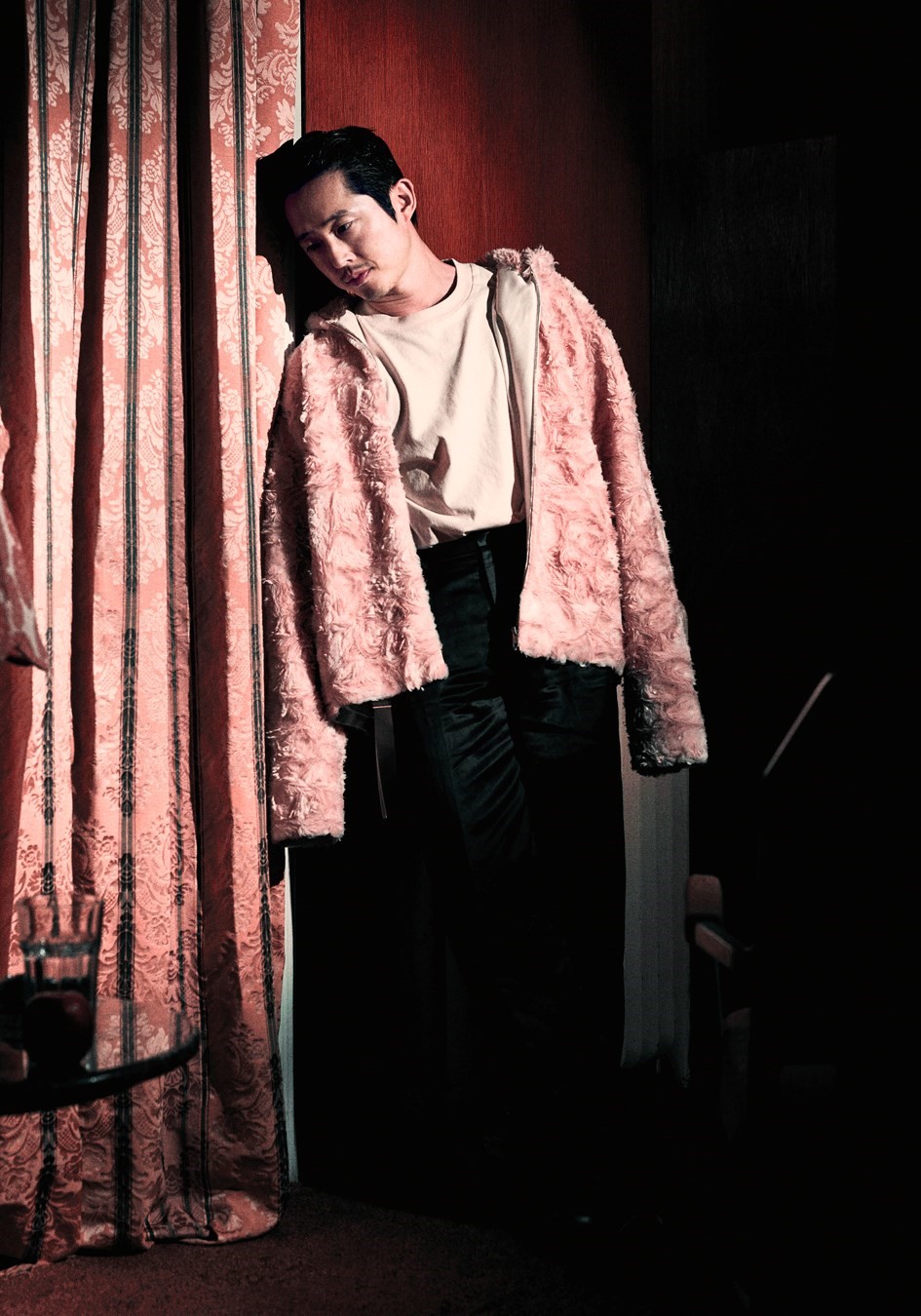
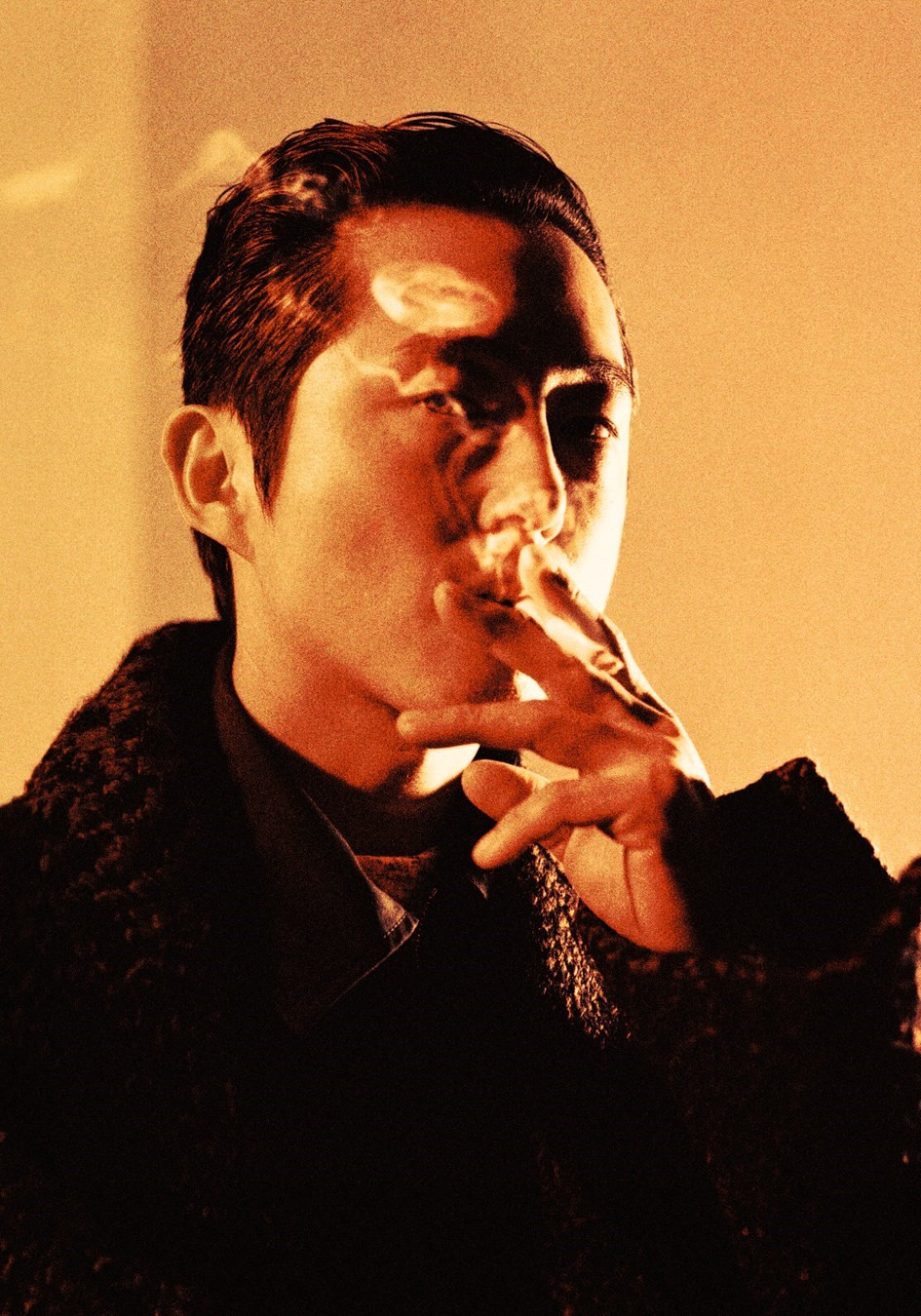
In other words, Yeun has been working against type for almost a decade and has undoubtedly expanded what’s possible in Hollywood for Asian American actors. It would have been easy, when he left The Walking Dead, to slip into a lucrative vein of his career in which he said yes to all those TV scripts that crossed his desk – a life where he played the CIA spy, or the ex-cop, or the numerous lead roles whose characters bore similarities to Glenn. But Yeun never pulls the same trick twice. He’s more interested in uprooting audience expectations, in exploring new facets of himself. His performance in Lee Chang-dong’s Burning is haunting. Yeun plays Ben, a slick, Gatsby-type playboy who burns down greenhouses for sport and keeps a drawer full of souvenirs from ambiguous, unnamed conquests. He’s charming, narcissistic and well travelled. He seems to have come from nowhere. Nothing really interests him. Yeun’s fine, precise gestures – the languorous walk, the bored eyerolls, the air of absolute comfort, the perfectly timed yawns – imbue the role with mystery and lend his breezy, affable disposition an unsettling, even lethal, quality. It’s like watching a pained smile melt away to reveal a crazed and maniacal expression. “I think that having started my career playing a guy who wasn’t as complicated as I’d like him to be, this guy who was a model of goodness, it feels really cool to play people and sides of myself that aren’t particularly accepted,” Yeun says when I ask about the appeal of playing villains. “I liked that this character was kind of fucked up. It was like, yeah, I have all these different sides. I can play other characters. Don’t limit me. Just because I’m being polite today doesn’t mean I’m polite all the time. Isn’t that the human condition on a larger level? That flawed and fragile nature?”
“Don’t limit me. Just because I’m being polite today doesn’t mean I’m polite all the time. Isn’t that the human condition on a larger level? That flawed and fragile nature?” – Steven Yeun
Yeun never really wanted to leave Korea. America did not represent to him some shining beacon of opportunity. His memories of life back in Seoul were, compared to those gruesome early scenes in Michigan, happy and curious: the food, the hours he spent wandering around his local neighbourhood, ambling through the arcade on his own. Even as a toddler, his parents would find him there alone. His family owned a home in a time when homeownership was a great luxury and their neighbourhood’s name translated, literally, to “enshrining heaven”.
But adults don’t tend to ask their children for advice. “My parents are from a generation where they thought, if you’re four or five years old, you don’t really know what’s going on – and what can you really explain to a four-year-old?” Yeun says. “But as a parent of two now myself, I realise that kids see everything. It’s like they see it from the womb.” He still doesn’t know why his father decided to uproot the family, though he suspects it has something to do with the Gwangju Uprising of May 1980 and the political instability of the times. Back then the mayor of Regina, Saskatchewan, had just started a programme to recruit Korean immigrants. Yeun’s father had fallen in love with the natural beauty of the nearby US state of Minnesota on a prior business trip and had cleaved to the dream of one day owning land there. Saskatchewan seemed like a ticket to America; he sold the house and put everyone on a plane.
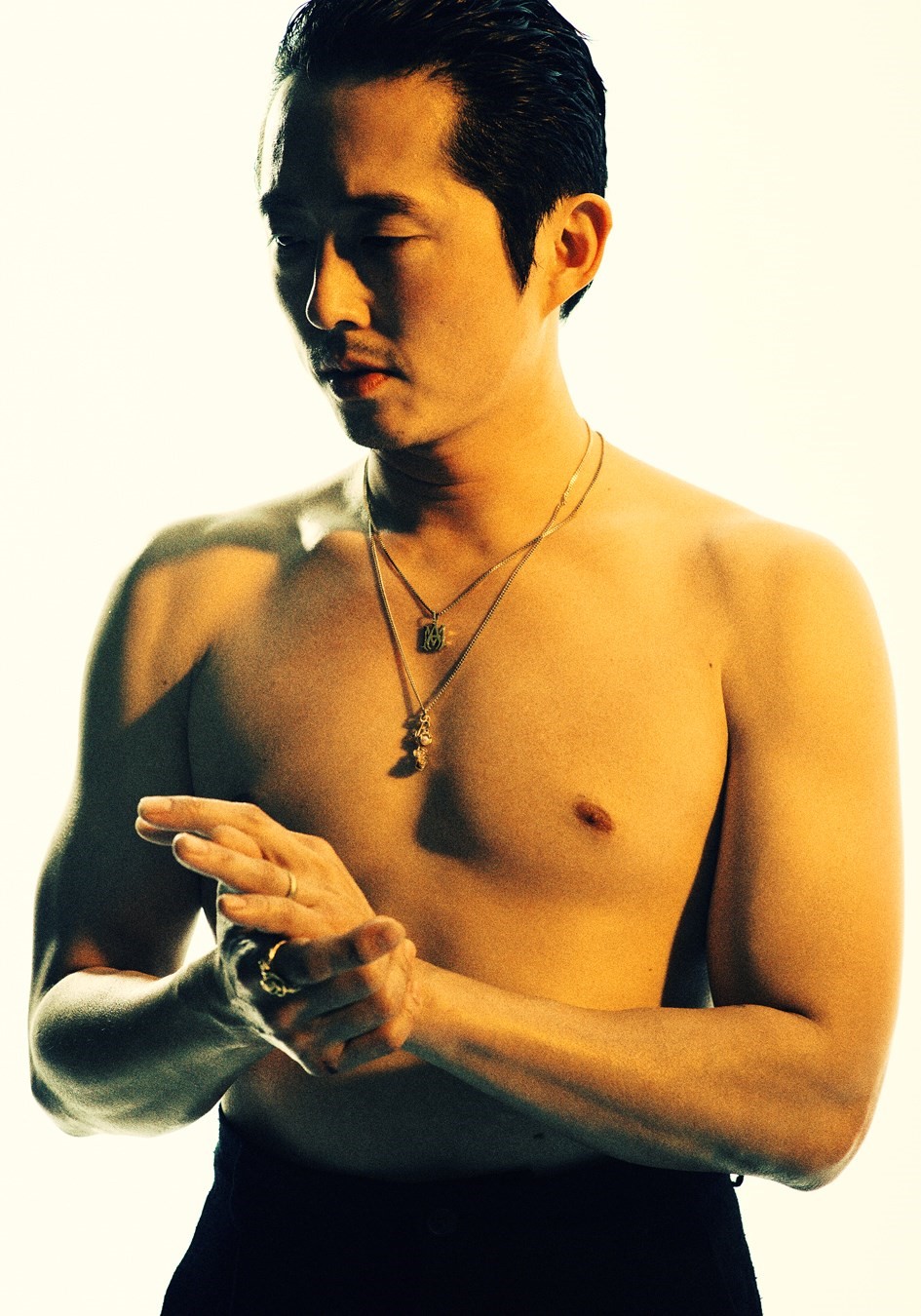
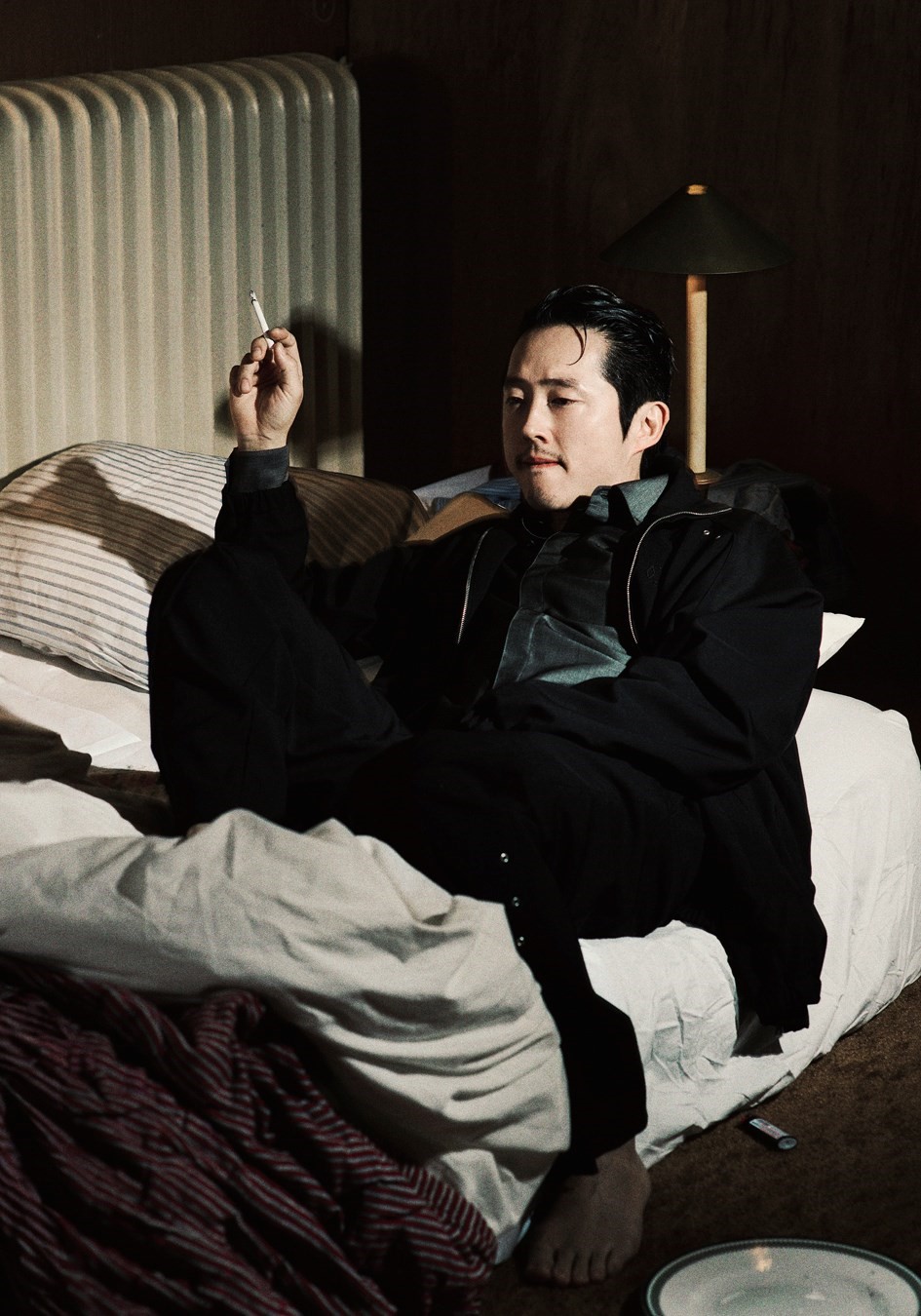
What Yeun remembers most about his arrival in Saskatchewan is his anguish. He remembers walking into his aunt’s little apartment there and seeing his family members sobbing in a circle, grieving the death of his grandmother. He remembers how much he hated going to school, how the first English words he learnt were “don’t cry” because they were so often directed at him in the classroom. He remembers a year later moving to a primarily white, working-class neighbourhood in Michigan called Taylor, where his parents ground away until they had enough money to move to a more affluent suburb in northern Detroit. “We didn’t really fit in there either,” Yeun says. They lived in a rental townhouse that was adjacent to the larger, fancier places in the subdivision, and Yeun always felt like they were the outsiders. His parents had worked themselves to the bone to get access to this particular corner of the world and he couldn’t care any less for it.
“I got lucky that I didn’t have to get my heart broken in LA” – Steven Yeun
Eventually his parents opened a beauty supply store. But Yeun was too restless and too angsty to contribute in any meaningful way. “I probably wasn’t as helpful as I should have been, or as faithful as other Korean sons who worked at their parents’ businesses,” he admits. “I was just, like, lying down in the back, listening to Beastie Boys albums, zoning out.” Yeun cured the boredom of suburban life the way many kids do. He played street hockey, or pond hockey, or basketball. He spent hours on chat forums talking to strangers or watching silly movies on pirated streams. He drove aimlessly around the city with his friends and consumed endless orders of western scrambles from Denny’s. Most of all he tried not to mess up his chances at college. And he spent ample time at the Korean church his family frequented, where he made friends with most of the other kids. “This is so cringe to admit,” he says, flashing a smile, “but I loved being in church band so much.” It was his first taste of performing for an audience. “I didn’t even just love the performance of it,” he says, “I got caught up in the mantle of being the leader of the praise group.” (To this day, he listens to praise music to access certain emotions for his characters.)
He joined an improv group while he was at Kalamazoo College in Michigan studying psychology, with neuroscience as his major. When he graduated in 2005 his parents were sure he would pursue med school or become a lawyer. Instead he told them he wanted to move to Chicago to try his hand at comedy. They were devastated. The two of them had moved 6,000 miles across the world, scraped together enough money to put their son through college and endured all the quotidian violence of American life just for him to reveal that he wanted to be funny for a living. “They weren’t happy about it,” he says, “but they supported me.” He worked on the city’s improv circuit for four years and eventually found himself at The Second City comedy club, whose alumni include Peele, Tina Fey and Stephen Colbert. It was there he developed the quick thinking, adaptability and comedic timing that make him such an effective dramatic actor.
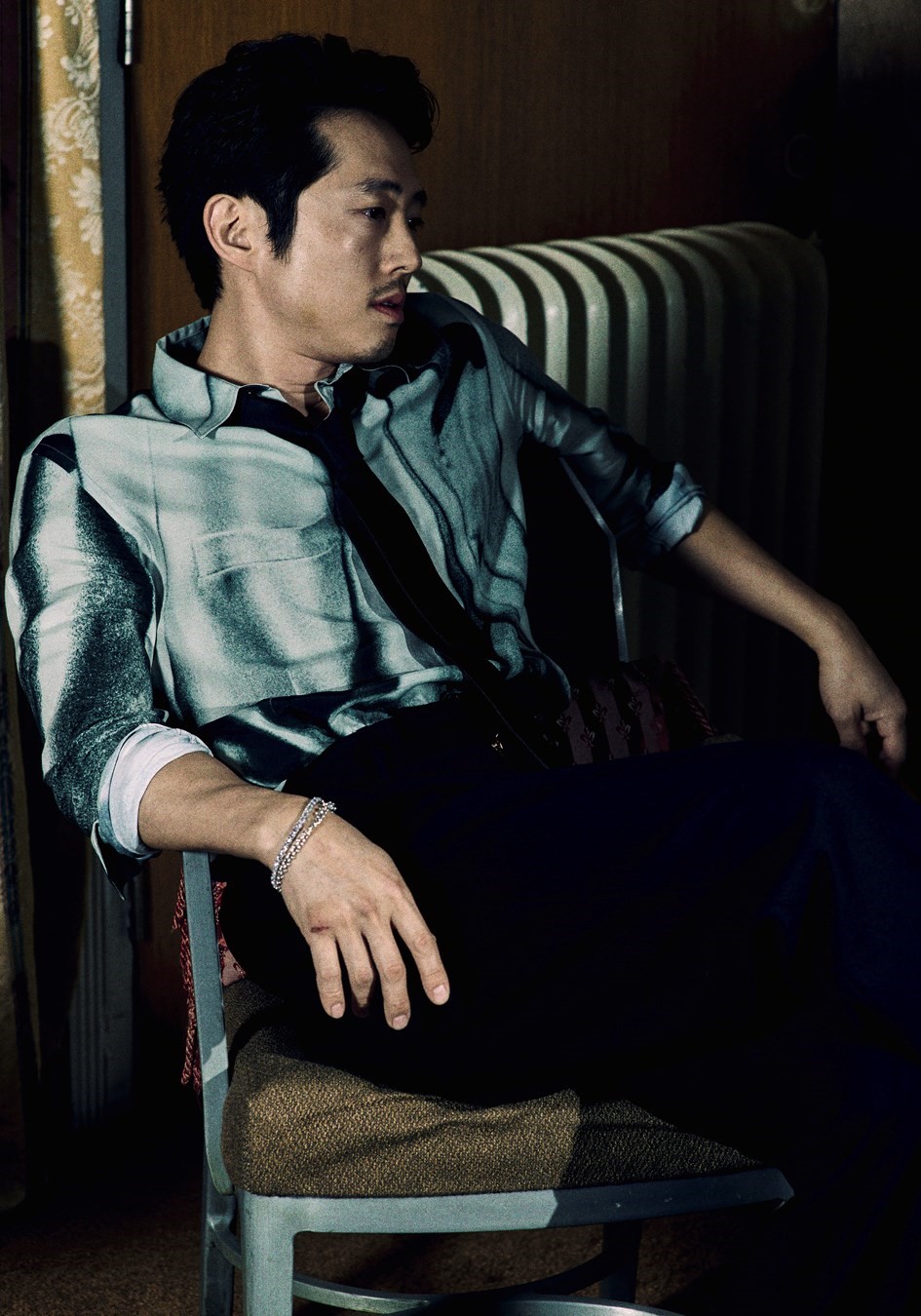
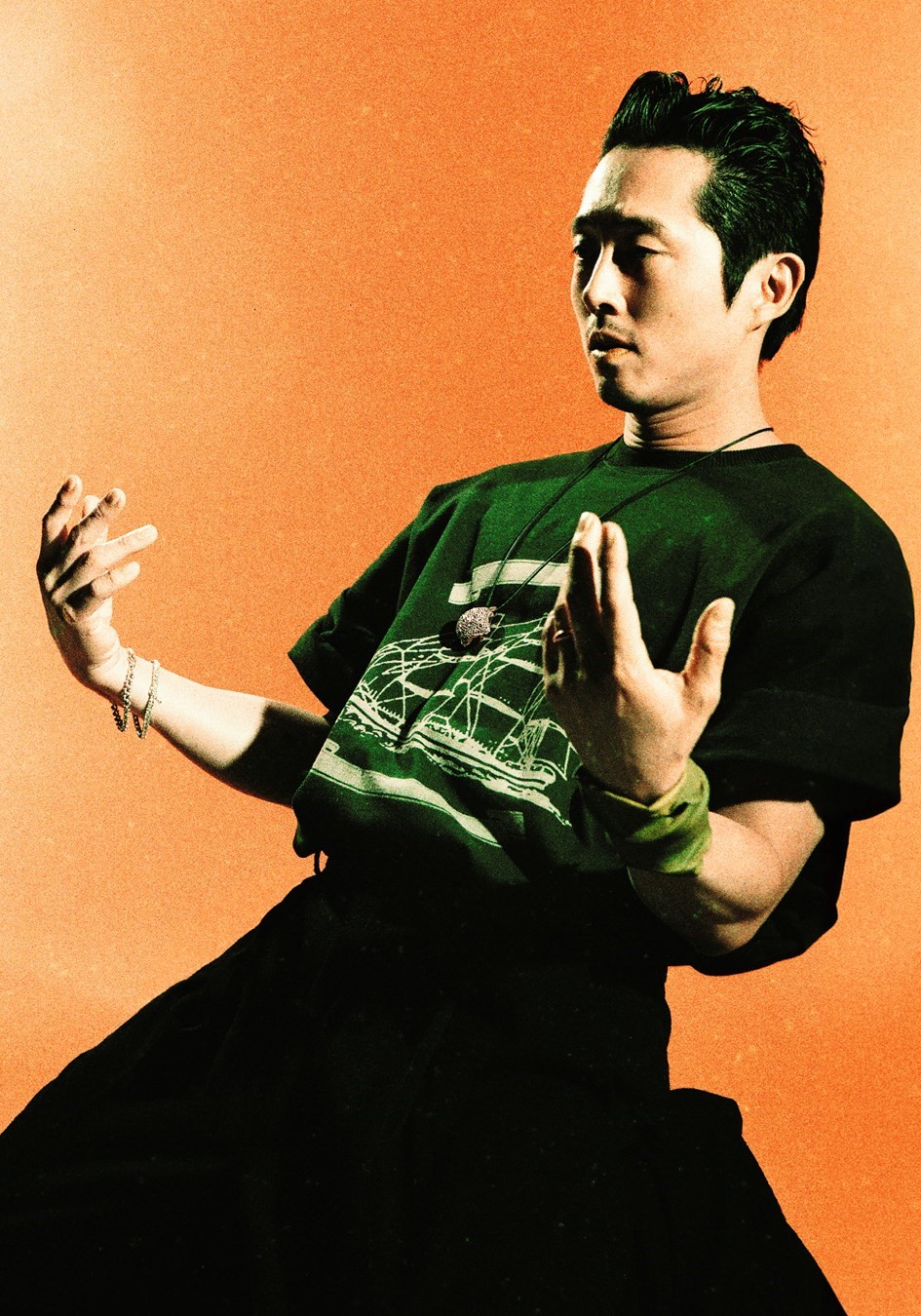
For a while he loved doing comedy. He loved making people laugh. But he got tired of how rigid and unforgiving it could be, and how often his identity became the butt of the joke. Two of his old friends from church had moved to Koreatown in Los Angeles and he resolved to chase his acting dreams there instead. He was 25. He had irritating and, at times, demeaning audition experiences, but: “I got lucky that I didn’t have to get my heart broken in LA.” Just five months after he moved there he landed what became the star role in The Walking Dead. At its peak it was the most-watched programme on cable television. Fans tattooed Yeun’s face on their bodies. He resigned from leading worship at his church when people began requesting selfies with him. He stayed on the show into the seventh series.
Yeun returned to Korea sometime around 2015, when Fox started airing The Walking Dead overseas. It was performing well, so the network invited him to visit and do some press. It was during that visit he was able to set up meetings with the leading figures of New Korean Cinema: Park Chan-wook (Oldboy, Lady Vengeance), Kim Jee-woon (I Saw the Devil, A Tale of Two Sisters) and Bong Joon-ho. It is now uncontroversial to say these are some of the greatest filmmakers of the 21st century, not just in Korea but on the global stage. “At the time, though, they weren’t really getting American attention like that, and so they were open to meeting me,” Yeun says. He was already a huge fan of all three; the first movie he saw from Director Bong (the honorific he always uses to address his colleague) was 2009’s Mother. “I got to have really brief meetings with those three but nothing really came from them – except Director Bong.” Two years later, an email materialised in his inbox from Bong, who had written a part specifically with Yeun in mind. “I owe him so much,” Yeun says. “I had no idea how it was going to go when I read that email. But if Director Bong calls to say, ‘I’m gonna do this and I want you to have a part in it,’ all you can say is, ‘Hell yeah.’ You don’t even really ask what it is.”
The industry’s face has changed significantly in the 15 years since Yeun started acting. “The good thing is that, in this last era, it feels like we’re getting a larger library of expression, and expanding how we articulate different aspects of our humanity,” he says. Now, for example, there’s a whole gamut of Asian American film and television to choose from, be it riotous sitcoms (Fresh Off the Boat, Kim’s Convenience), trashy reality television (Bling Empire), emotionally resonant arthouse films (Past Lives, The Farewell) or dark, psychological portraits like Beef, where race is relevant but not novel, and where characters are messy and self-destructive but not beyond the threshold of redemption.
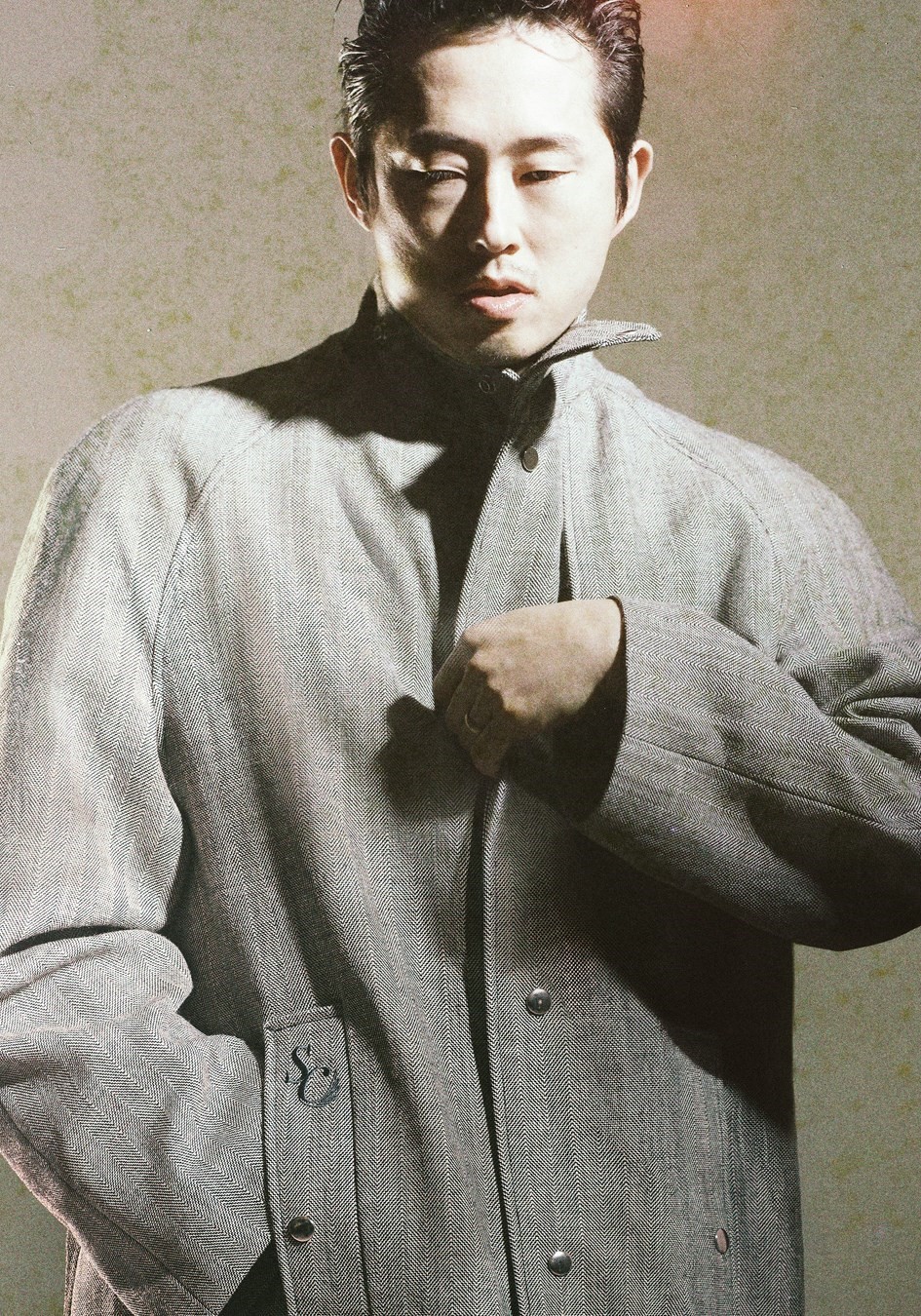
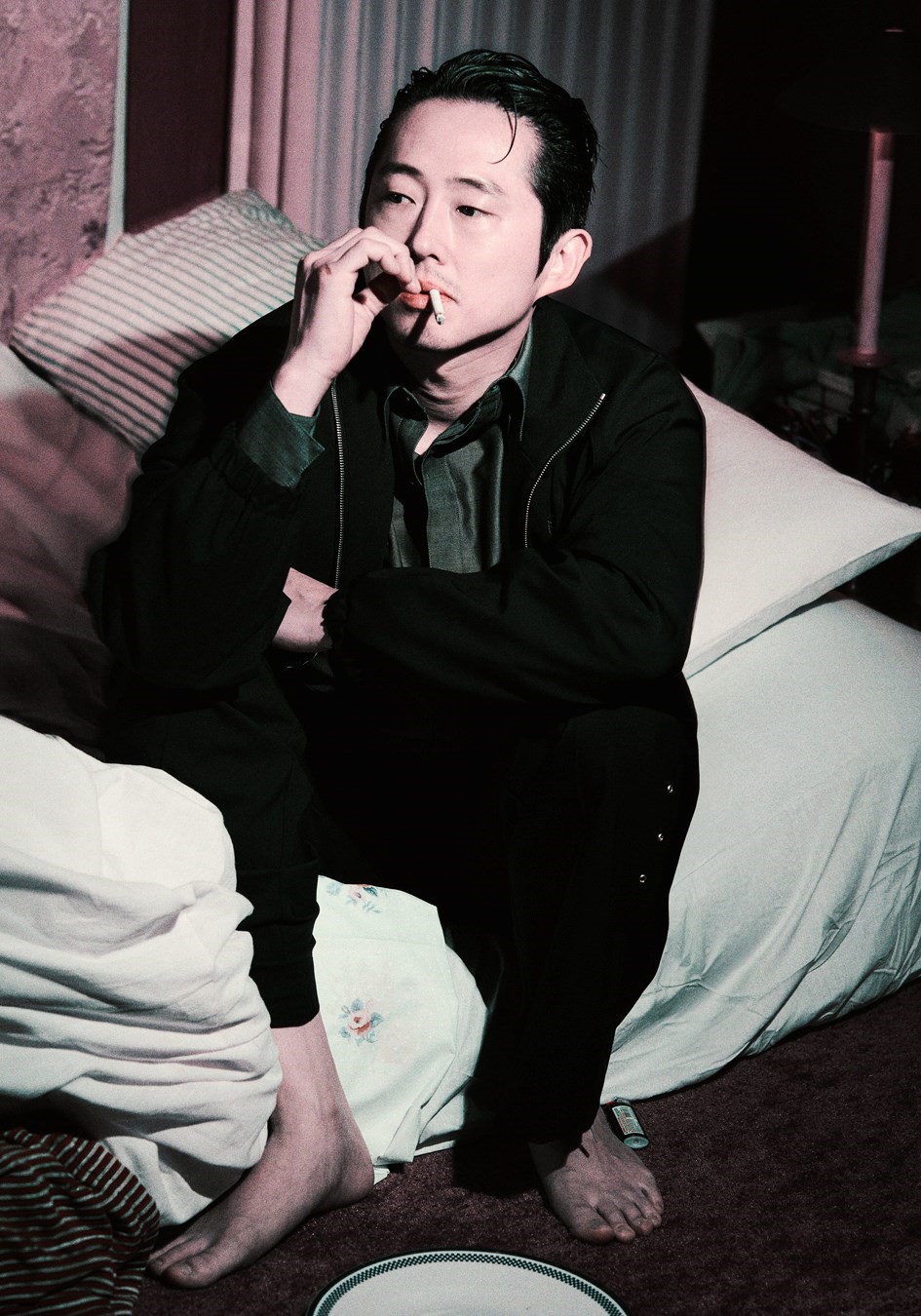
Yeun is lucky, he says, to have access to scripts with characters that feel human-sized to him, characters who end up revealing to him something new about himself, or his family, or the way he moves through the world around him. “It’s a very symbiotic relationship in my experience, because, as an actor, you’re required to be an empty vessel to let the character and story move through you,” he says. “And then the trade-off is that you offer parts of yourself to that character and that character offers parts of itself to you. That’s where I get wider in my empathy and my understanding – I feel like I’m excavating parts of myself I might have buried. It allows me to heal those portions of myself, therapeutically, but also allows other people to connect with those things too and learn not to feel shame about them either.”
“If I’m making decisions based on what my community wants me to do, then I’m not actually being free. Because the freedom in my expression is what expands the culture. Not me doing what we’ve seen before” – Steven Yeun
In 2020 Yeun starred as a shame-ridden, struggling young father in Lee Isaac Chung’s Minari, which swept the major awards at Sundance. Like Beef, Minari doesn’t make any attempts at colour-blindness, but it doesn’t allow race to become too deterministic a factor in its characters’ lives either. The story tracks the hardships of a Korean American family in the 1980s as they attempt to start a new life in rural Arkansas, where Jacob Yi and his wife, Monica, have to make ends meet by working as chicken sexers, sifting through baskets of newborn chicks and sorting them by gender. They live in a trailer home on a 50-acre farm that Jacob is desperate to believe will be the key to his lofty American dream; he spends all his money, and love, trying to till the unforgiving soil, while neglecting the intensifying needs of family life. Yeun plays Jacob with incredible restraint and builds a character who isn’t easy to love. He can be selfish, stubborn and remote. He’s moored in a quiet, simmering rage. It’s frustrating to watch him screw it all up, tempting to reach into the screen and shake him, hard. But he is also remarkably, gloriously human, and his messiness makes him far more than a 3D-printed recycled stereotype.
For Yeun, Jacob became an avatar for his father. The role helped him to reflect on the difficult choices his dad had to make when he, like Jacob, moved the family to America in the 1980s, and also to reconsider what it means to live in a culture that assigns value according to what you own as opposed to the sort of person you are. It helped him to close the gap between himself and someone he loved but didn’t fully understand, and to acknowledge now, as a father himself, the challenges his own dad must have grappled with.
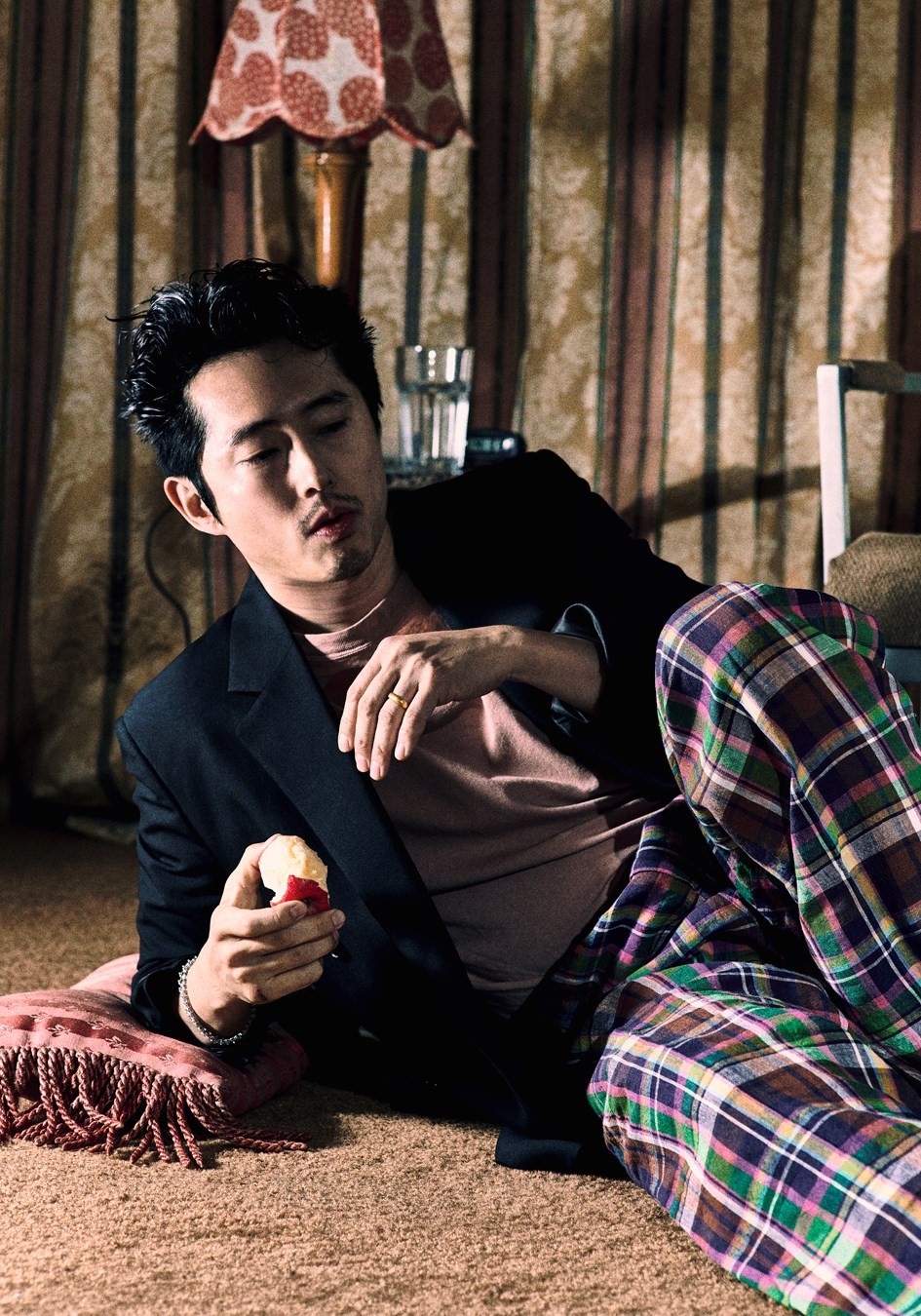
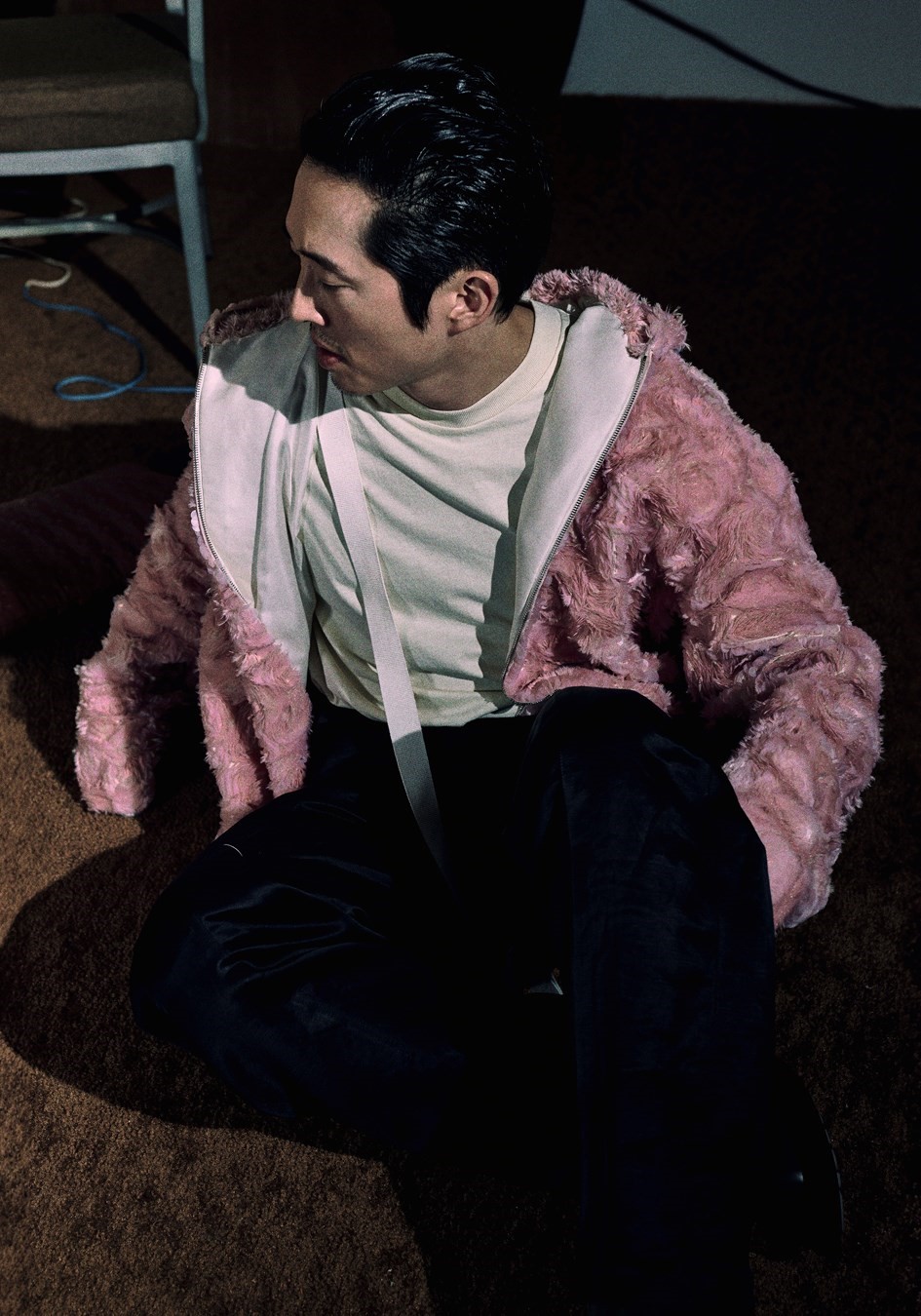
There’s a spectral, familial thread between Yeun’s past couple of performances, and I ask him whether the connection is intentional. Beef’s highly strung, inept handyman being crushed under the weight of American capitalism. Nope’s slick, Stetson-wearing businessman who’s trying to get rich by selling his nightmares to tourists. And Minari’s patriarch who’s losing everything in his dogged pursuit of this western idea of success. These are all characters who are united in their disillusionment with the American dream and the realisation that whatever promises were made to them will not be kept, that the shimmering mirage of American meritocracy was always just that – a mirage.
“I’d say that they kind of bleed into each other,” Yeun says. “I think the reality for a lot of immigrants, and for these three guys who have to be Asian people in the West, is that they came here with an understanding and an image of how things are supposed to go, and they’re frustrated with the fact that it’s not going the way it should. I feel like all these men I’ve played are people coming to realise not just their disillusionment with America itself, but also this disillusionment with their own minds and what they’ve been conditioned to think about success. They need to face themselves but they can only see themselves through the gaze of others instead of in their own mind’s eye. So of course they feel stuck.” In 2021, Yeun became the first Asian American to be nominated best actor in Oscar history, for his role in Minari. It was a bittersweet moment: such firsts serve not only as congratulation, but to draw attention to the exclusion that came before. The honour felt weird to Yeun. He is cautious about the ways that recognition of this kind can lock you into a pigeonhole or saddle you with the projections of an audience that might hold you aloft as a beacon of progress but he doesn’t feel trapped by any expectations. “I would be lying if I said that there wasn’t any pressure, but what I’ve realised is that in order to honour that pressure, you have to not honour it,” he says. “If I’m making decisions based on what my community wants me to do, then I’m not actually being free. Because the freedom in my expression is what expands the culture. Not me doing what we’ve seen before.”
Whatever you saw from Steven Yeun yesterday, in other words, is not what he plans on showing you tomorrow.
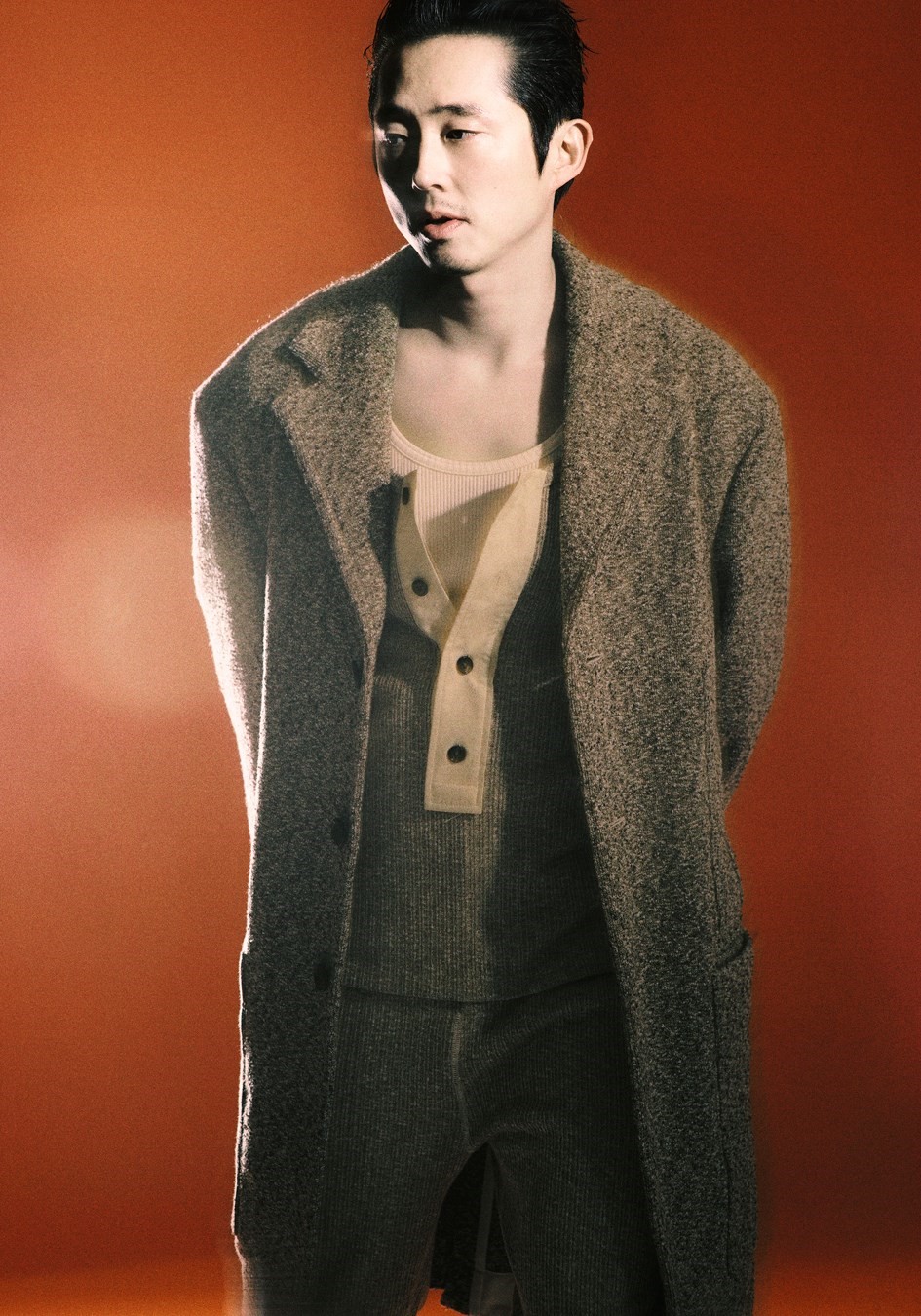
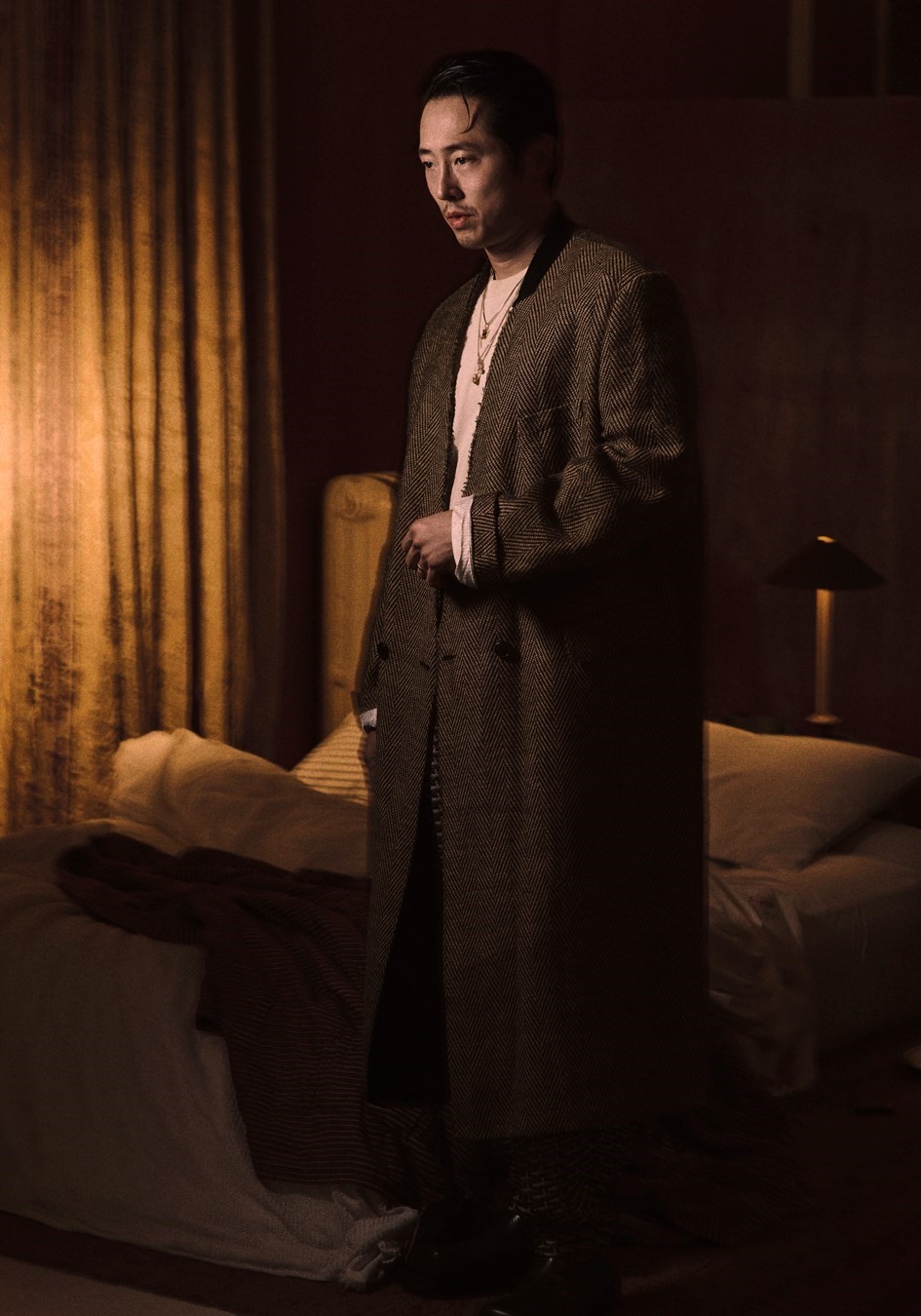
Grooming: Mira Chai Hyde at A Spiegelman Management using ALLIES OF SKIN, HOUSE OF SKUFF and DIOR BEAUTY. Set design: Kelly Infield at Walter Schupfer Management. Digital tech: Joe Mitchell. Photographic assistants: Daniel Brittain and Stephen Panosian. Film loader: Kenny Burrell. Styling assistant: Giulia Bandioli. Tailor: Gayane Mnatsakanyan at Susie’s Custom Designs. Grooming assistant: Agnese Cabala. Set-design assistant: James Beyer. Production: Circadian Pictures. Executive production: Michael Klein. Production assistant: Ashton Wilson. Post-production: Armin Rafili. Special thanks to Concrete Rep
This story features in the Spring/Summer 2024 issue of AnOther Magazine, which is on sale internationally on 29 February 2024. Pre-order here.
